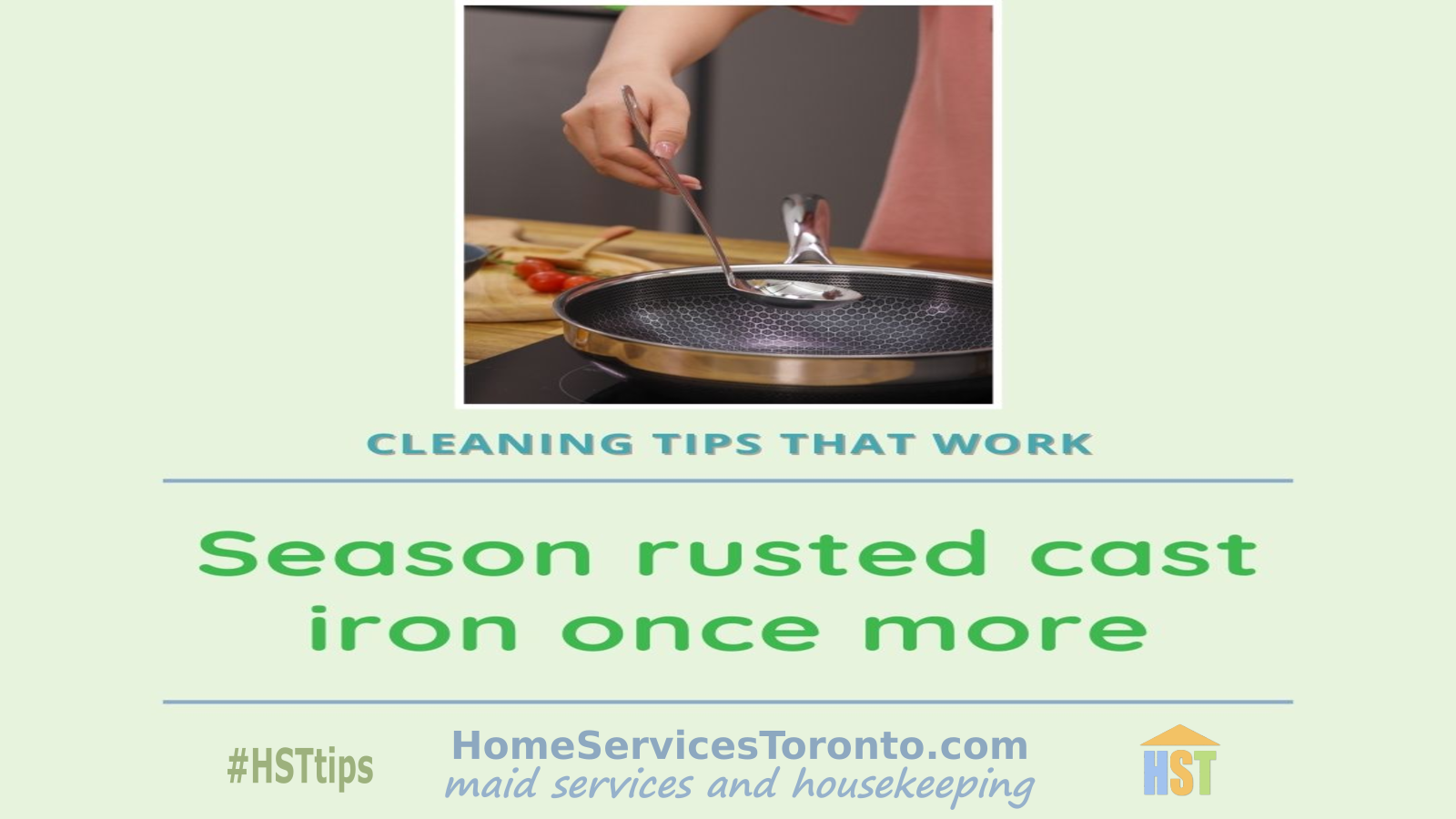The ultimate guide to restoring a rusty cast iron skillet
Cast iron skillets are a staple in many kitchens. They are versatile, durable, and can last for generations. However, if not properly cared for, they can rust and become unusable. In this guide, we will show you how to restore a rusty cast iron skillet to its former glory.
Why Cast Iron Skillets Rust
Cast iron skillets are made of iron, which is prone to rusting when exposed to moisture and air. When a cast iron skillet is not properly seasoned or stored, it can rust. Rust can also occur if the skillet is washed with soap or left in water for too long.
How to Remove Rust from a Cast Iron Skillet
Removing rust from a cast iron skillet is a simple process that can be done with a few household items. Here’s what you’ll need:
Steel wool
Sponge (with a scrubber side)
Mild dish soap
Vegetable oil
Scour: Ignore all those times you’ve been told to be gentle with your cast-iron skillet. The reason to be gentle while cleaning is to preserve the seasoning. The iron itself is virtually indestructible. Here, you’re going to strip away all the rust (and the seasoning). Don’t worry-we’ll add more seasoning later. It’s going to take a little bit of elbow grease and a hard abrasive tool to remove the rust. Get the pan wet, add a little soap, and then go to town with your scrubber (depending on the level of rust, a tough sponge will do). Scrub in small circles, focusing on the rustiest parts first. Continue scrubbing until you see the original black iron emerge. Test Kitchen tip: Have a newer pan that’s developing small amounts of rust? There’s an easier way to restore it to new. Simply dampen a paper towel with oil and use it to wipe away the rust. Continue wiping the entire skillet, then skip to step 3.
Rinse: At this point, you’ve likely worked up a copper-brown mush. Rinse that gunk off in the sink. Make sure your skillet is totally clean by doing another scrub this time with a soft soapy sponge. Buff off any residue or rusty bits that remain.
Dry: With the rust completely removed, your cast-iron skillet should be looking almost back to normal. But without any seasoning, it’ll have a dark gray, matte finish. Dry it off with a clean dish rag. (Psst. Don’t use a rag you’re fond of. The skillet can leave dark stains!) To dry it completely, place the skillet on the stove and turn on the heat for a few minutes. Any lingering moisture will evaporate right off.
Season: Once your skillet is dry, it’s time to season it. Seasoning is the process of adding a layer of oil to the skillet to protect it from rust and give it a non-stick surface. To season your skillet, rub a thin layer of vegetable oil all over the skillet, including the handle and bottom. Place the skillet upside down in the oven and bake at 350°F for one hour. Let the skillet cool in the oven.
FAQs
Q1. Can I use a dishwasher to clean my cast iron skillet?
No, you should never put a cast iron skillet in the dishwasher. The high heat and harsh detergents can strip the seasoning and cause rust.
Q2. Can I use soap to clean my cast iron skillet?
Yes, you can use soap to clean your cast iron skillet. However, you should use mild dish soap and avoid soaking the skillet in water for too long.
Q3. How often should I season my cast iron skillet?
You should season your cast iron skillet after every use. This will help protect it from rust and keep it non-stick.
Q4. Can I use metal utensils on my cast iron skillet?
Yes, you can use metal utensils on your cast iron skillet. However, you should avoid using sharp metal utensils that can scratch the surface.
Q5. How do I store my cast iron skillet?
To store your cast iron skillet, make sure it is completely dry and lightly oiled. You can stack your cast iron skillets, but make sure to place a paper towel or cloth between them to prevent scratches.
Conclusion
A rusty cast iron skillet may seem like it’s beyond repair, but with a little elbow grease and some household items, you can restore it to its former glory. Remember to always properly season and store your cast iron skillet to prevent rust from forming. With proper care, your cast iron skillet can last for generations.

